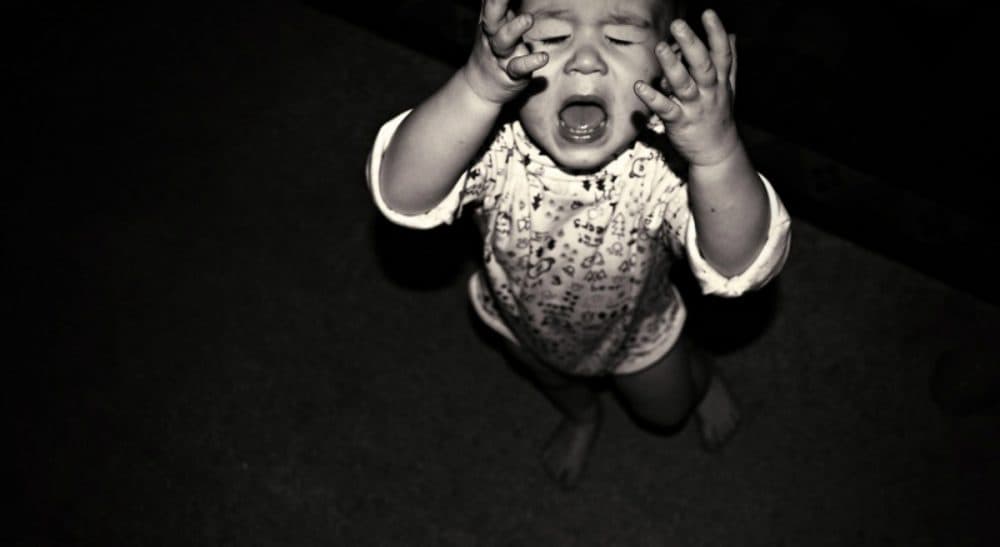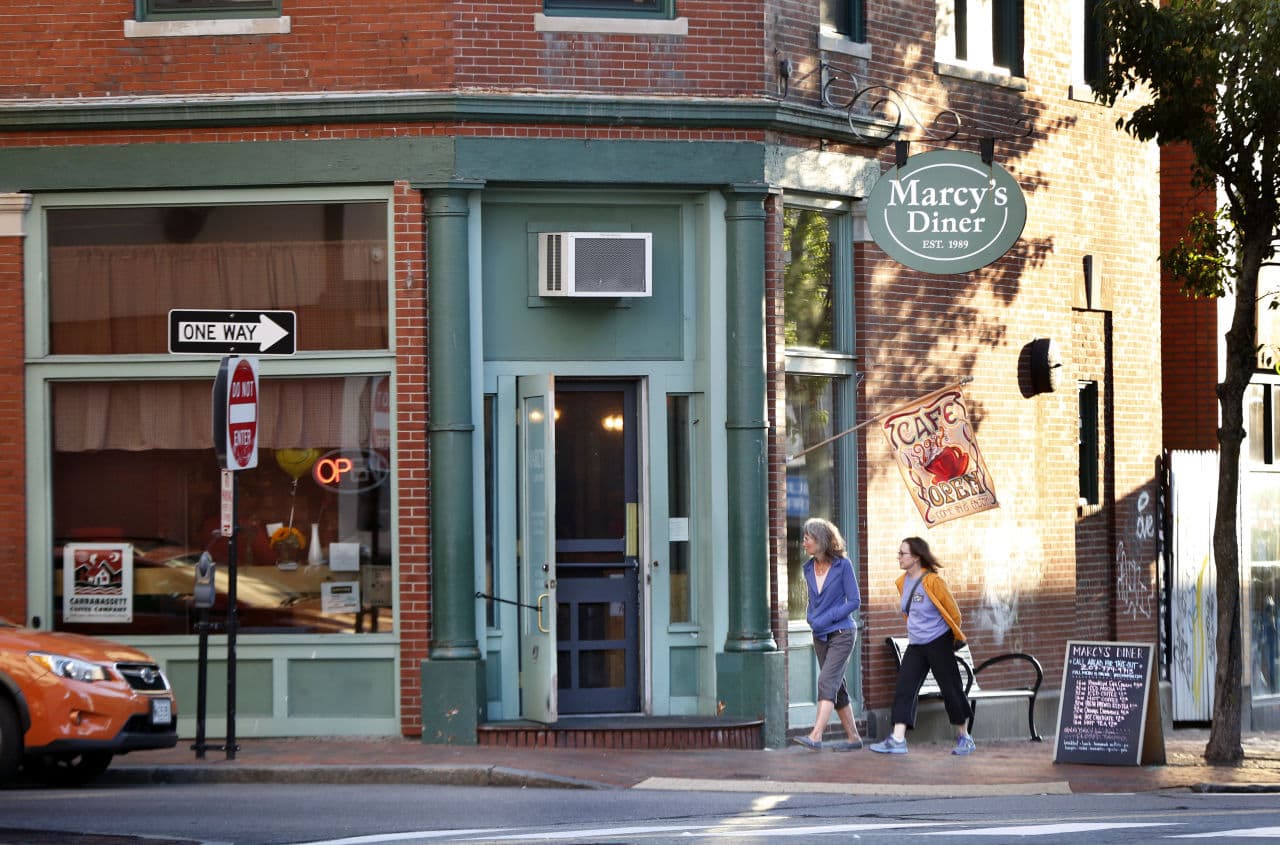Advertisement
When Breakfast Goes Viral: Of Crying Babies, And Those Who Must Listen To Them While Eating

On the last day of our vacation, my husband and I stopped at a clam shack in Wells, Maine. We ordered in a gray shingled cottage and then went out to a tree-shaded lawn behind the parking lot to eat our fried oysters and lobster roll at a picnic table. At the next table sat four women, laughing as they ate their French fries. In a stroller next to them sat a plump baby, chortling as he ate his sock.
Aside from the fact that it was cloudy and 65 degrees, the scene was as idyllic as it sounds, including the baby’s delight at the sock in his mouth, his squeals when he grabbed his own toes, and his occasional squawks and growls. We smiled at him, the women at the table occasionally turned toward him, saying a few words or shaking a toe themselves, and we all enjoyed our lunches.
A couple of days earlier and a couple of miles north, the collective mealtime scene was not so sanguine. On a rainy Saturday morning at Marcy’s Diner in Portland, this much is certain: A family waited for a table and their food, their toddler cried, the owner of the diner yelled at the family and told them to leave, the mother complained on Facebook, and breakfast went viral.
restaurants epitomize the problematic tensions between wants and needs, on the one hand, and individuals and groups, on the other, that characterize American culture today.
Had the child cried for 40 minutes while her parents ignored her, as the owner claimed? Or was she just a little “antsy” because she had to wait so long for her pancakes, as her mother described it in The Washington Post? Whatever the facts in this particular case, and whatever the behavior of the adults in question (yelling at customers doesn’t show great judgement, but neither does waging an attack on Facebook), a familiar media firestorm erupted over the relative rights of crying babies and those who must listen to them while eating.
There are places where crying babies are expected, like playgrounds and pediatrician’s offices. There are places where they are inescapable, like airplanes and restrooms with changing tables. There are places where they are verboten, like nightclubs and the Academy Awards. And then there are restaurants, and their half-siblings, cafes and bars, which we argue about, not surprisingly, for restaurants epitomize the problematic tensions between wants and needs, on the one hand, and individuals and groups, on the other, that characterize American culture today.
Restaurants originated millennia ago as necessities: places for travelers or people whose homes lacked kitchens to feed themselves. Taverns, inns and cafes eventually became places for socializing as well, where you could not only get a bite to eat and a drink, but could sit in conversation with your friends — or strangers — standing at bars, sitting on benches, or gathered around long tables. The restaurant, a place where you sat at a table of your own and ordered off a menu, emerged in late-18th-century France, and quickly came to signify both leisure and status. We can find one root of our current dilemma in this history, with its diverse purposes and connotations.
Advertisement

Another root, I would argue, lies in the tension between individualism and collectivism that has shaped U.S. history. From “We the people” and “life, liberty, and the pursuit of happiness,” through town meetings and homesteads, progressive movements and robber barons, bowling leagues and “Bowling Alone,” we have balanced these two impulses. Today, though, it often seems like the forces of selfish entitlement are tipping the scales. As we text our way through meetings, attack referees who rule against our children, stand defiantly in the express checkout lane with too many items in our cart, and vote down tax increases for public schools, we think more and more of ourselves and less and less of others.
And thus we come to restaurants. Are they sites of collective nourishment and enjoyment, where we are all responsible for each other’s happiness? Or are they places to get the food we pay for, regardless of our effect on the patrons around us? When we go to a restaurant, are we at the bottom of Maslow’s hierarchy, meeting our basic physiological need to be fed? Or are we consumers more broadly speaking, feeding our desires for pleasure and status?
Of course the answer to these questions is yes. Restaurants bring people together to share an experience that — aside from trendy communal tables — is fundamentally individual: my table, my waitress, my order. Some restaurants, like food courts at rest stops, exist to meet basic needs. Others are rarified atmospheres designed to cater to self-indulgence.
Today, though, it often seems like the forces of selfish entitlement are tipping the scales.
In this context, the crying baby is not just a practical irritation, but a symbol of our conflicts. Babies and small children are creatures of pure need – and pure selfishness, as it were, for they cannot meet their own needs and often they don’t even know what they are. Unable to control themselves or their worlds, they remind us, with their wails, that we can’t control the world either. And, of course, they are incredibly annoying. Which is why their parents matter so much — and why we get so angry at their parents.
I’ve taken my children to restaurants since they were a week old (my husband is a chef, and that was often the only way they could see him), but I always walked right out the door as soon as they made any fuss that couldn’t be soothed immediately with breast, bottle, cracker or toy. And now that my children are grown — and delightful restaurant companions — I can say both that it was worth it and that I still believe that’s the way to go. If we want restaurants to be spaces for everyone to enjoy, including babies and children, we all need to take responsibility -- for ourselves and our children. Then we can all enjoy our restaurants, but also, as at the clam shack, our children, individually and collectively.
